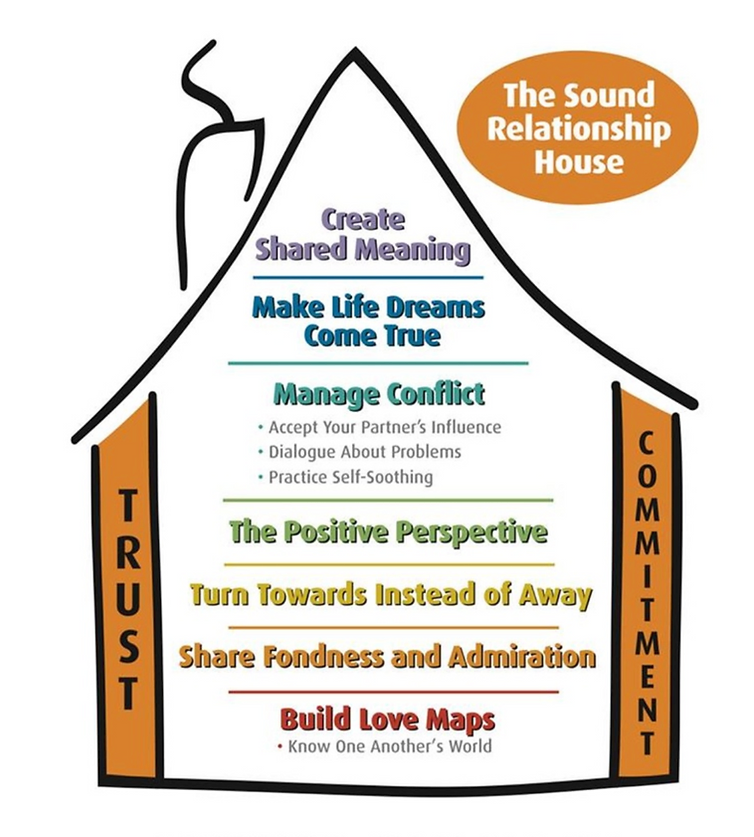
Therapy & Counseling Services in
Westchase – Tampa, Florida
Westchase – Tampa, Florida
Evening appointments available
Tampa Life Counseling offers therapy and counseling services in person or online
in Westchase Tampa Florida.
Schedule your free 15 minute phone consultation today!
Couples Therapy
Tampa, Florida
Tampa, Florida
Gottman Couples Therapist & Marriage Counselor in Westchase Tampa, Florida
Gottman Couple Therapy focuses on building relationship skills and problem-solving skills. It is based on world renowned relationship experts, Drs. Julie & John Gottman’s 4+ decades of evidenced based research.
“The goals of Gottman Method Couples Therapy are to disarm conflicting verbal communication, increase intimacy, respect, and affection, remove barriers that create a feeling of stagnancy in conflicting situations, and create a heightened sense of empathy and understanding within the context of the relationship.”

What Should I Expect from Gottman Marriage Counseling Sessions?
In the first few sessions, your the rapist will conduct interviews to learn about you and your spouse and explore potential problems. Then your therapist will discuss how long and how frequent your sessions will be. In subsequent sessions, your therapist will focus on providing skills to strengthen your relationship based on 9 principals of the Sound Relationship House.


Build Love Maps
Building love maps refers to understanding your spouse’s “psychological world” – knowing their life history, their worries, and what stresses them out, as well as what their joys and hopes are. Without a basic understanding of your partner, it can be hard to build a foundation for a healthy, successful relationship. A lack of understanding can also be a major contributor to most marriage issues.
2. Share Fondness And Admiration
To reduce contempt in a marriage, there needs to be affection and respect between both partners. By expressing this, you can mutually create fondness and admiration. Results might not be instantaneous, and it will normally take persistence and effort on both parts, but these feelings can be improved gradually with time.
3.Turn Towards Instead Of Away
When placed in overwhelming situations, it can feel natural to want to run away from problems instead of addressing them head-on. Both partners may need to be open and upfront about their feelings and learn how to identify any “bids for connection” from their significant other, and how to respond to them appropriately.
4. The Positive Perspective
Similar to how people can have a natural tendency to want to avoid facing their problems, people can also become defensive when given any criticism. However, criticizing your spouse can be quite problematic. Instead, couples need to take a positive approach to solve the issues that come up in their relationship, rather than placing any blame on an individual.

5. Manage Conflict
C onflict is normally a part of any healthy relationship, and it can have a positive function. Around 69% of all marriage problems may be perpetual ones, meaning that t hey will likely exist forever, whereas the other problems may be solvable. Therefore, most of the skills you learn will teach you how to manage the issues that will be there to stay.
6. Make Life Dreams Come True
This part of The Sound Relationship House usually involves facilitating a healthy and encouraging environment for each other to openly discuss your hopes, values, and future aspirations.
7. Create Shared Meaning
This section of the House often refers to understanding important visions, narratives, myths, and metaphors about the relationship. This can involve some of the deeper meanings of the relationship and can also include what its legacy will be.
8. Trust
The first pillar or wall of the House is generally trust. This can be knowing that your partner always has your back and will support you. Trust can involve keeping your spouse’s best interests in mind and not just your own.
10. Commitment
The second pillar involves the notion that your relationship with this person will be a lifelong journey, no matter what happens. If things take a turn for the worse, you may both be committed to improving the relationship. It can also include cherishing your partner’s positive qualities, instead of focusing on any possible negative ones that they might have, either real or imagined.
If these two pillars become broken, it’s usually the result of one or more things going wrong in the first seven principles. By addressing them, you can rebuild trust and commitment by starting with the foundation.
Hi! I’m Joseph, Certified Gottman Couples Therapist.

I provide a science-based, personalized, and directive approach to couples therapy and marriage counseling that guides couples in cultivating a healthier relationship… One that’s built on authenticity, respect, and compassion that will deepen and grow throughout your lives together.
I tailor my approach for every couple I work with—because I strive to hear and see both of you.
I want you to feel hope that you truly CAN work through your struggles.
Let’s Work Together
